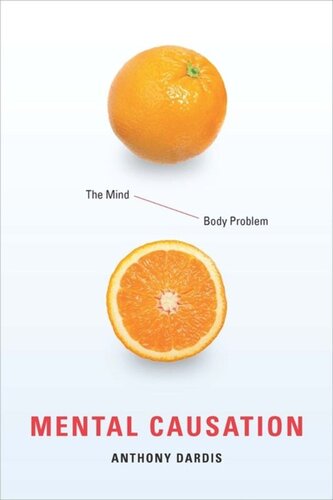

Most ebook files are in PDF format, so you can easily read them using various software such as Foxit Reader or directly on the Google Chrome browser.
Some ebook files are released by publishers in other formats such as .awz, .mobi, .epub, .fb2, etc. You may need to install specific software to read these formats on mobile/PC, such as Calibre.
Please read the tutorial at this link: https://ebookbell.com/faq
We offer FREE conversion to the popular formats you request; however, this may take some time. Therefore, right after payment, please email us, and we will try to provide the service as quickly as possible.
For some exceptional file formats or broken links (if any), please refrain from opening any disputes. Instead, email us first, and we will try to assist within a maximum of 6 hours.
EbookBell Team

5.0
20 reviewsTwo thousand years ago, Lucretius said that everything is atoms in the void; it's physics all the way down. Contemporary physicalism agrees. But if that's so how can we—how can our thoughts, emotions, our values—make anything happen in the physical world?
This conceptual knot, the mental causation problem, is the core of the mind-body problem, closely connected to the problems of free will, consciousness, and intentionality. Anthony Dardis shows how to unravel the knot. He traces its early appearance in the history of philosophical inquiry, specifically in the work of Plato, Aristotle, Descartes, and T. H. Huxley. He then develops a metaphysical framework for a theory of causation, laws of nature, and the causal relevance of properties. Using this framework, Dardis explains how macro, or higher level, properties can be causally relevant in the same way that microphysical properties are causally relevant: by their relationship with the laws of nature. Smelling an orange, choosing the orange rather than the cheesecake, reaching for the one on the left instead of the one on the right-mental properties such as these take their place alongside the physical "motor of the world" in making things happen.